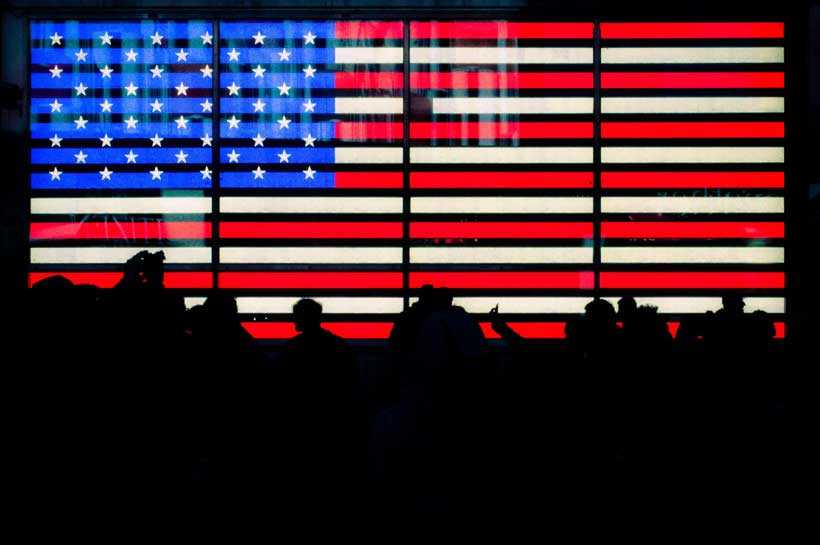As several analysts grapple over the futility of calling for greater international cooperation against the Coronavirus pandemic, US – China relations seem to be plumbing to ever increasing lows day by day. One has to just glance at the daily news cycle to see how both the virus and the US – China rivalry seem to be going almost hand in hand in representing perhaps the most serious threats to global peace and prosperity. Threats that are in turn more than likely to dramatically impact the world’s economic and security outlook for many years to come.
Yet, even before the COVID-19 pandemic stormed all forms of political and international relations discourse, the primacy with which the US – China rivalry had been afforded was never in doubt of fading anytime soon anyway. Especially considering President Trump’s incessant obsession with everything China in his previous election campaign, it was already expected that his hardline stance on China would only intensify the closer it came to his re-election bid. This for instance was best encapsulated in his ‘successfully concluded trade deal’, which in supposedly ending the long and protracted US- China trade war,was to stand as one of the most significant achievements of the Trump presidency. In fact, it was to represent in essence a vindication of President Trump’s entire ethos of America First as manifest in his more assertive and obstinate approach to US diplomacy and foreign policy.
Yet based on some of President Trump’s most recent statements, even the achievements of his much-touted trade negotiations now stand jeopardized as both the White House and State Department continue to directly blame China for causing the Coronavirus pandemic. In fact, the way both President Trump and Secretary of State Pompeo have gone about in accusing China of deliberately covering up and mishandling the crises during its earliest stages has stood out particularly for its lack of evidence and sole reliance on hawkish rhetoric. What these claims have instead effectively done is to conflate the security and economic implications of the ‘Chinese threat’ on US primacy. An aspect which has in turn continued to resonate unequivocally with President Trump’s highly conservative and mostly far-right electorate.
Its thus not much of a surprise that China’s response has been to mount an even stronger diplomatic offensive. This has been evident in the collective vitriol expressed by a new breed of more assertive diplomats engaging in what has been ascribed (perhaps more disparagingly) as ‘Wolf Warrior Diplomacy’. Yet, it is worth emphasizing that while such a response is likely to have been expected, it still represents a marked departure from the more subtle, patient and restrained manner that had up till now characterized Chinese diplomacy under the now infamous guiding principlesof Deng Xiaoping. While such assertiveness may represent a benign attempt by China at limiting the defense of its international credibility to the diplomatic front, it could also point towards the growing eminence of more hawkish voices taking hold within the Chinese politburo. Hence, ultimately signifying a more overt and perhaps more dangerous challenge to US primacy on China’s part.
Yet as this back and forth between Chinese and US officials rapidly intensifies, many have been left wondering whether the very threat of China’s rise has been deliberately overblown within US policymaking circles to begin with. This argument for instance has been raised by a number of leading analysts such as Fareed Zakaria among others. In a recent article, Zakaria very pointedly explains how designating China as a strategic competitor has allowed the Pentagon to once again justify the kind of grandiose plans and expenditures which more or less defined some of the most tense days of the US – Soviet Cold War. This kind of thinking for instance is replete in some of the latest analyses and commentary calling for a complete overhaul of the US military – industrial complex in response to the ‘Chinese threat’. Chris Brose’s recent book ‘The Kill Chain: Defending America in the Future of High-Tech Warfare’, makes exactly this argument drawing on his years of expertise working closely with the Pentagon and the US Senate’s Armed Services Committee. As pointed out by Zakaria, this kind of discourse feeds directly into the perceived inevitability and simple predictability of a US – China conflict in what has been famously ascribed to now as the much-vaunted Thucydides Trap. A concept whose own author – Graham Allison – has warned against turning into a self-fulfilling prophecy. A similar skeptic can be found in Michael Beckley whose latest research also questions the severity and alarm that has been afforded to China’s rise. Especially when considering the long way China still has go to overtake the US both economically and militarily.
Nevertheless, the fact remains that on the purely political front, this debate on China’s rise while completely stripped off its historical precedents and hard economic numbers has been reduced to just diplomatic vitriol between both powers. Whereas, President Trump has simply continued what he knows best, the more assertive line taken by China now however directly feeds into US insecurities regarding the future of its power projection capabilities even more.
With the COVID-19 pandemic now representing the latest battleground for this rivalry to play out, China’s attempts at ‘Mask Diplomacy’ and pandemic aid are adding even more fuel to this fire by appearing to take on a more leading role in international leadership. All while appearing to eclipse the US’s waning influence even further as it undergoes one of the most divisive US elections to date. A development that is to only further complicate this rivalry more along the basis of simple prestige than on any serious hard power discrepancies in the years to come.


